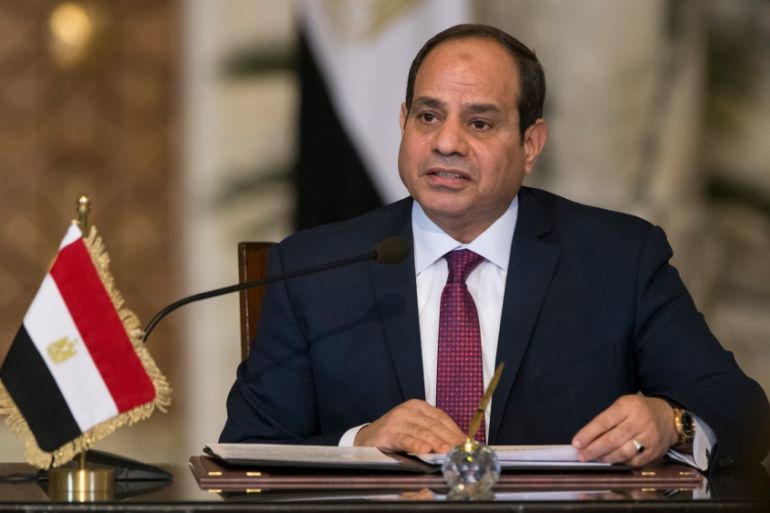Egypt extends state of emergency for three months
The state of emergency was introduced in April 2017 after 45 people were killed in attacks on churches.

Egypt has extended by another three months a nationwide state of emergency, citing security reasons.
The latest extension, which will commence on January 13 under a decree issued by President Abdel Fattah el-Sisi on Tuesday, comes after two deadly attacks on Friday against Coptic Christians in Helwan district, south of the capital, Cairo.
State news agency MENA said the move was taken to allow security forces to “take (measures) necessary to confront the dangers and funding of terrorism and safeguard security in all parts of the country”.
Egyptian authorities first imposed a nationwide state of emergency in April 2017, after two church bombings killed at least 45 people. Similar extensions were announced in July and October last year.
The measure grants the president, and those acting on his behalf, the power to refer civilians to State Security Emergency Courts for the duration of the three-month period.
There is no appeal process for State Security Emergency Court verdicts.
It also allows the president to intercept and monitor all forms of communications, imposing censorship prior to publication and confiscating extant publications, impose a curfew for or order the closure of commercial establishments, sequestration of private properties, as well as designating areas for evacuation.
The emergency measures allow security forces to detain people for any period of time, for virtually any reason. They also grant broad powers to restrict public gatherings and media freedom.
However, human rights groups have repeatedly criticised Egypt’s human rights situation, saying conditions in the country have continued to deteriorate since el-Sisi took power in 2013.
|
|
Egypt has for years battled an armed, anti-government campaign on the rugged and thinly populated Sinai peninsula.
In November 2017, the country saw its deadliest attack ever when gunmen assaulted a mosque in the town of Bir al-Abed. More than 300 people were killed, and about 120 wounded in the assault.
Egypt is expected to hold presidential elections later this year.
El-Sisi, who in 2013 led the overthrow of democratically elected President Mohamed Morsi, of the Muslim Brotherhood, is expected to run for another term.
The date for this election will be announced in the coming week.